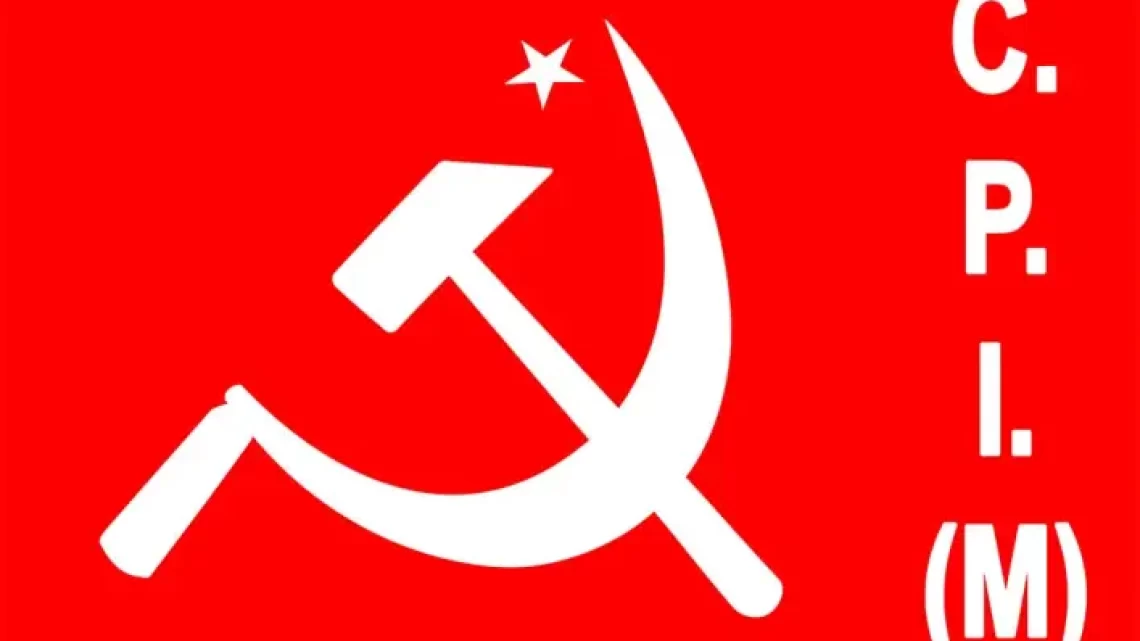
CPI-M Withdraws from Jammu and Kashmir Elections: A Bid to Challenge BJP
April 4, 2024The Communist Party of India-Marxist (CPI-M) has opted out of the forthcoming Lok Sabha elections in occupied Jammu and Kashmir, aiming to consolidate votes against the Bharatiya Janata Party (BJP).
According to reports, CPI-M leader M Y Tarigami highlighted the BJP’s alleged imposition of dictatorship and violation of the fundamental rights of Kashmiri people. He underscored the party’s goal to oust the BJP and its perceived “tyrannical” governance.
Tarigami urged fellow political entities to join forces to prevent vote fragmentation, emphasizing the urgency of defeating the BJP and safeguarding the rights of the people of Jammu and Kashmir.
The CPI-M’s decision mirrors the strategy of the People’s Alliance for Gupkar Declaration (PAGD), a coalition of political parties in Jammu and Kashmir. The PAGD has vehemently opposed BJP policies, particularly the abrogation of Article 370.
Scheduled from April 11 to May 19, 2024, the Lok Sabha elections in India are poised to be significant amid the backdrop of heightened political tensions and contested policies in Jammu and Kashmir.
The CPI-M’s withdrawal from the electoral race underscores the depth of discontentment with the BJP’s governance among certain political factions in Jammu and Kashmir. By refraining from contesting, the CPI-M aims to consolidate opposition votes and present a unified front against what they perceive as oppressive governance under the BJP.
Tarigami’s call for unity among political parties reflects a broader sentiment within the opposition, emphasizing the importance of collective action in resisting what they view as the BJP’s authoritarian tendencies and its contentious policies in the region.
The alignment of the CPI-M’s decision with the PAGD’s stance signifies a coordinated effort among opposition forces to challenge the BJP’s dominance in Jammu and Kashmir politics. This strategic move underscores the significance of alliances and coalitions in shaping electoral outcomes, particularly in regions marked by political volatility and contested identities like Jammu and Kashmir.
As the Lok Sabha elections approach, the political landscape in Jammu and Kashmir remains fluid, with various parties and alliances positioning themselves to assert their influence and challenge the BJP’s hold on power. The outcome of these elections will undoubtedly have far-reaching implications for the region’s political trajectory and the ongoing debates surrounding its autonomy and governance.
The Communist Party of India-Marxist (CPI-M) has opted out of the forthcoming Lok Sabha elections in occupied Jammu and Kashmir, aiming to consolidate votes against the Bharatiya Janata Party (BJP).
According to reports, CPI-M leader M Y Tarigami highlighted the BJP’s alleged imposition of dictatorship and violation of the fundamental rights of Kashmiri people. He underscored the party’s goal to oust the BJP and its perceived “tyrannical” governance.
Tarigami urged fellow political entities to join forces to prevent vote fragmentation, emphasizing the urgency of defeating the BJP and safeguarding the rights of the people of Jammu and Kashmir.
The CPI-M’s decision mirrors the strategy of the People’s Alliance for Gupkar Declaration (PAGD), a coalition of political parties in Jammu and Kashmir. The PAGD has vehemently opposed BJP policies, particularly the abrogation of Article 370.
Scheduled from April 11 to May 19, 2024, the Lok Sabha elections in India are poised to be significant amid the backdrop of heightened political tensions and contested policies in Jammu and Kashmir.
The CPI-M’s withdrawal from the electoral race underscores the depth of discontentment with the BJP’s governance among certain political factions in Jammu and Kashmir. By refraining from contesting, the CPI-M aims to consolidate opposition votes and present a unified front against what they perceive as oppressive governance under the BJP.
Tarigami’s call for unity among political parties reflects a broader sentiment within the opposition, emphasizing the importance of collective action in resisting what they view as the BJP’s authoritarian tendencies and its contentious policies in the region.
The alignment of the CPI-M’s decision with the PAGD’s stance signifies a coordinated effort among opposition forces to challenge the BJP’s dominance in Jammu and Kashmir politics. This strategic move underscores the significance of alliances and coalitions in shaping electoral outcomes, particularly in regions marked by political volatility and contested identities like Jammu and Kashmir.
As the Lok Sabha elections approach, the political landscape in Jammu and Kashmir remains fluid, with various parties and alliances positioning themselves to assert their influence and challenge the BJP’s hold on power. The outcome of these elections will undoubtedly have far-reaching implications for the region’s political trajectory and the ongoing debates surrounding its autonomy and governance.

